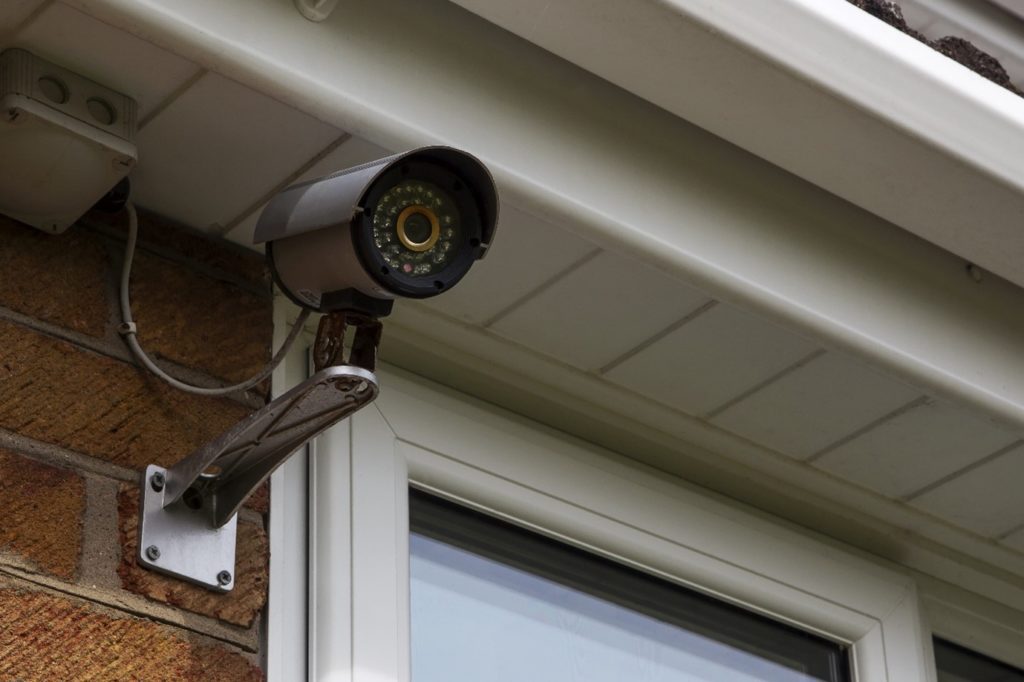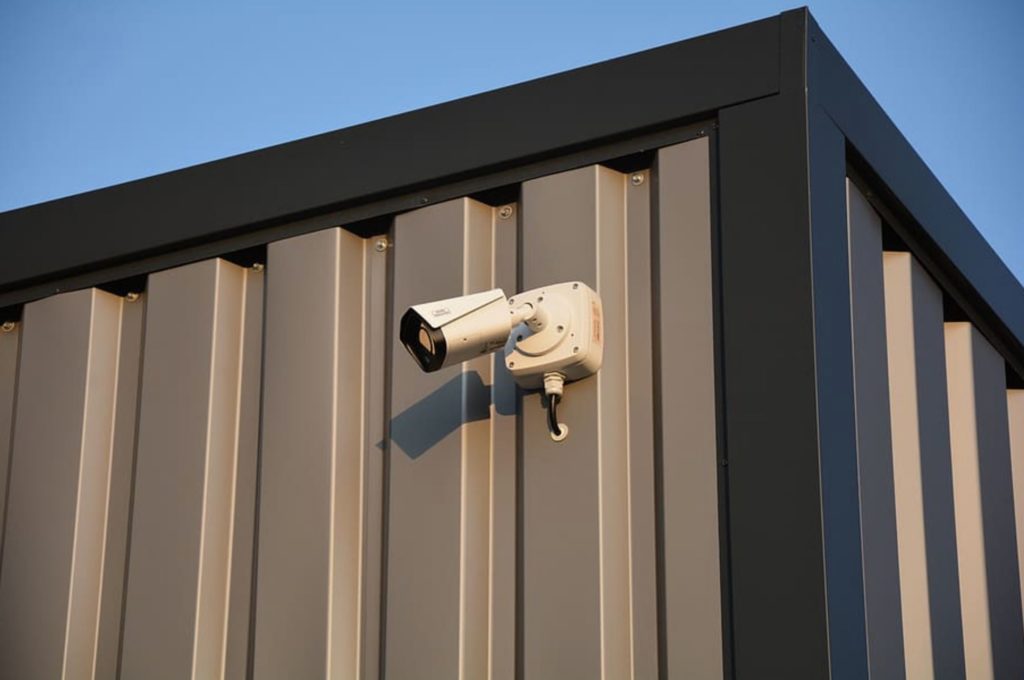With the COVID-19 pandemic forcing many non-essential businesses to close and workers to work from home, many business premises have been left unattended for long periods of time. It appears that despite restrictions easing, working from home or a hybrid approach will become the new normal for many workplaces. As a result, you may feel uneasy about leaving your business premises regularly leaving your premises empty and unmonitored. Commercial CCTV can help dispel your worries and put your mind a rest by giving you remote and easy access to live video footage of your property while you are not present.
This blog post will explain what commercial CCTV is, the different types of devices available, and the main benefits associated with commercial CCTV.

What is Commercial CCTV?
CCTV is a commonly used term that most people are aware of, but what does it actually stand for? In its traditional definition, CCTV stands for Closed-Circuit Television and involves a video camera transmitting footage via a set of wires to a small number of monitors or to a recording device (DVR). The footage is only sent to a few select locations or often just one singular location and is not openly broadcast, which is why it is referred to as a closed-circuit. Only a limited number of approved people should have access to the video footage to protect the privacy of the individuals who have been recorded. The main purpose of closed-circuit television is for surveillance and security of private property, business or public space.
Commercial CCTV is video surveillance of a business or company’s property or business premise. This can be surveillance of the inside of the property, the outside of their property, or both depending on the business’s preference. Many commercial CCTV cameras now operate wirelessly, and the footage can be accessed on smart devices such as tablets or smartphones.
Types of CCTV for Your Business
In general, there are 4 main distinct categories of CCTV, and they are the following:
1. Wired CCTV Cameras
As the name suggests, wired security cameras are those that have to be physically hardwired into both your internet network and a power source using cables. They are very reliable as they do not rely on having a strong Wi-Fi signal in order to record footage.
2. Wireless CCTV Cameras
Wireless surveillance cameras do not have to be wired into your internet network and instead use your Wi-Fi connection. However, a cable will still have to be run from your wireless camera to a power source.
3. Indoor Security Cameras
Indoor CCTV systems are located inside a property and are often installed in high traffic areas such as entrances and exits to the building. They are useful for ensuring that no one enters your property without your knowledge, or to potentially catch shoplifters in the act.
The camera’s night vision feature allows footage to still be recorded at night-time when the lights are turned off, so you can continue monitoring throughout the night to deter or record any late-night break-ins.
4. Outdoor Security Cameras
Outdoor security cameras are located on the exterior of a property and are usually directed towards the property’s entrances and exits; car parks; and outdoor spaces. garages. As they must withstand adverse weather conditions, including strong winds and heavy rain, they are often bulkier and made from more durable, weather-proof materials.
Like indoor CCTV they have night vision capabilities to ensure they are able to capture footage regardless of what time of day it is and the lighting conditions.
Benefits of Having Commercial CCTV System
There are several advantages of investing in commercial surveillance cameras, such as:
Deterring Antisocial Behaviour and Burglars
Sometimes just having an outdoor CCTV camera that is highly visible outside of your property is enough to discourage potential criminals from breaking into your business, stealing your property, or causing damage to your premises. Often, they will decide it is not worth the risk of being recognised or being caught, and they will move on to somewhere else that is less secure.
Providing Evidence in the Case of a Crime
Sometimes a visual deterrent isn’t enough so in the event that your business is broken into, then the commercial CCTV may be able to provide footage of the crime occurring or images of the perpetrator. This can be used as proof of the crime and be used as evidence in court.
Giving You Peace of Mind
A commercial CCTV system can provide you with peace of mind. You do not have to worry about leaving your business unattended over the weekend or holidays. It just generally makes you feel safer knowing that you will be alerted should anyone enter the property when they should not be and that you can easily review the footage to check what is going on.
Having the Ability to Monitor Your Premise Remotely
Advancements in CCTV now allow you to gain access to the footage recorded by your commercial security cameras on the go from smart devices. This makes it easy for you to monitor your property wherever you are whether be from home, while you are shopping at a supermarket, or holidaying abroad.
Conclusion
It is evident that commercial CCTV can be an advantageous investment for any business and can help you to protect your premises, workers, and assets from thieves, vandals or other criminals. With working from home becoming the new normal it may be even more than ever to have commercial CCTV to protect your business premises as it is now more frequently left unoccupied. It will give you peace of mind and help you sleep easier knowing that your business is safe even when you are not there.
